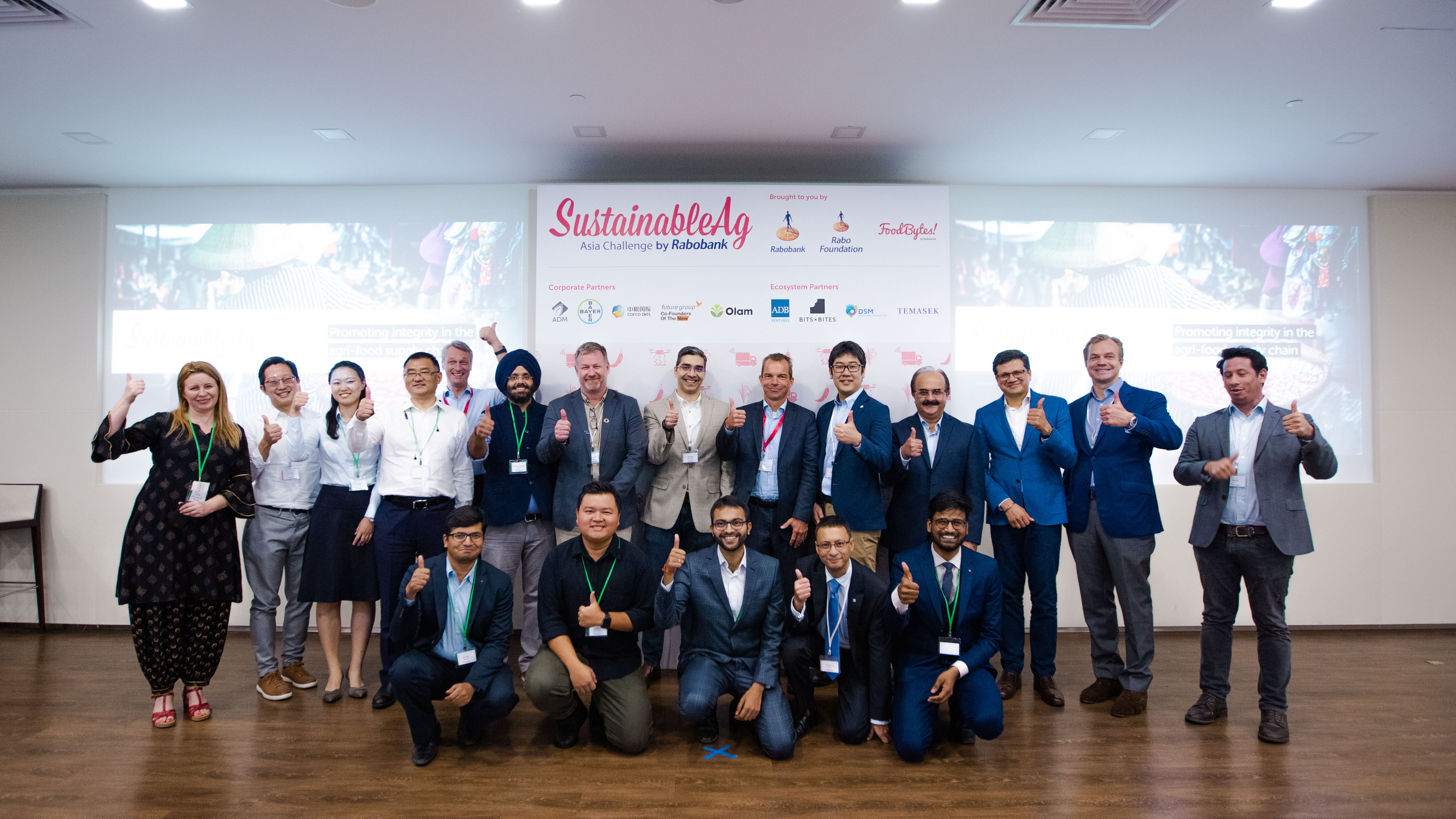KrASIA’s parent company, 36Kr was part of the outreach and scouting efforts in China.
Asia’s population is expected to increase from 4.6 billion to 5.3 billion by 2050. Food security is challenged by rising demand for food, changing consumer preferences, and the need for food sources with lower environmental impact. With limited arable land and resources, there is a demand for alternative solutions to address concerns over food insecurity and sustainability.
Data and innovation are key in driving the changes needed, said Diane Boogard, Rabobank Asia’s CEO, at an event in Singapore today. The bank, a sustainability-oriented company and active player in food and agriculture financing, organized the SustainableAg Asia Challenge, aiming to connect startups with innovative solutions with Rabobank’s corporate clients to maximize sustainability in the food supply chain.
The competition concluded today and had 138 entries. The bank shortlisted 14 startups from Singapore, Indonesia, India, and China, a selection which represent a diverse range of solutions in different fields, such as helping smallholders with their crops, financing options, or technology to boost productivity and efficiency.
The shortlisted agritech startups pitched to a panel comprising senior management of the Rabobank Foundation, as well as senior representatives of the competition’s partners, ADB ventures, Archer Daniels Midland, Bayer, Bits & Bites, COFCO International, DSM, Future Group, Olam International, and Temasek.
The winner was Stellapps Technologies, an Indian internet of thing (IoT) startup that seeks to digitize the dairy sector to increase the income of producers.
Rabobank announced five top submissions in total. Besides Stellapps, the other four top submissions are DeHaat (2nd prize) also from India, Longcom IoT (3rd prize) from China, AgNext (merit prize) from India, and PT Crowde Membangun Bangsa (merit prize) from Indonesia.
Most of the startups in this challenge hail from outside of Southeast Asia, mainly from India and China. Regarding its participation, Chinese company Longcom IoT said it was driven by its intention to expand to the Southeast Asia market.
Similarly, homegrown firm Glife –one of the shortlisted startups that pitched to the panel today– said participating in competitions like SustainableAg Asia Challenge is important and relevant even without winning any cash prize. This is because the company saw this as an opportunity to present itself to the ecosystem as it looks to expand regionally (possibly by the end of 2019) and raise funds, co-founder Wayne Goh told KrASIA.
Together, the five startups who did take home cash prizes totalling USD 20,000 will present their solutions at Rabobank Asia’s Food and Agri (F&A) Advisory Board Meeting in Shanghai on October 31st. The annual event brings together chairmen and CEOs of leading food and agribusiness companies and commodity traders from China, India, and Southeast Asia.
Speaking at the prize-giving ceremony, the head of innovation at Rabo Foundation said they welcome and encourage companies that did not win the challenge today to reach out to them to discuss a potential collaboration.
The challenge was held in partnership with Padang & Co, an open-innovation firm that brings together the public, private, and people sector for tech innovations.
